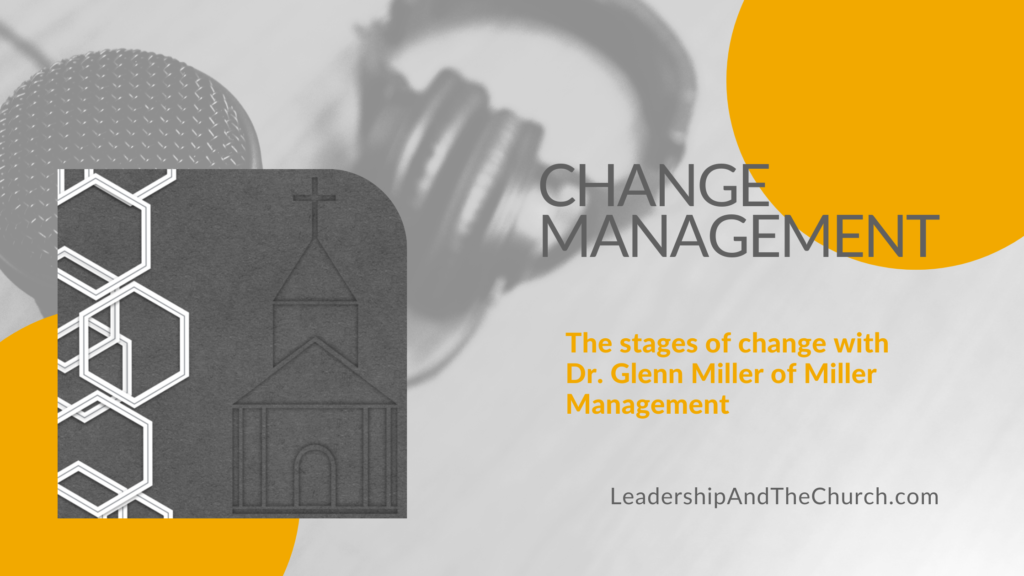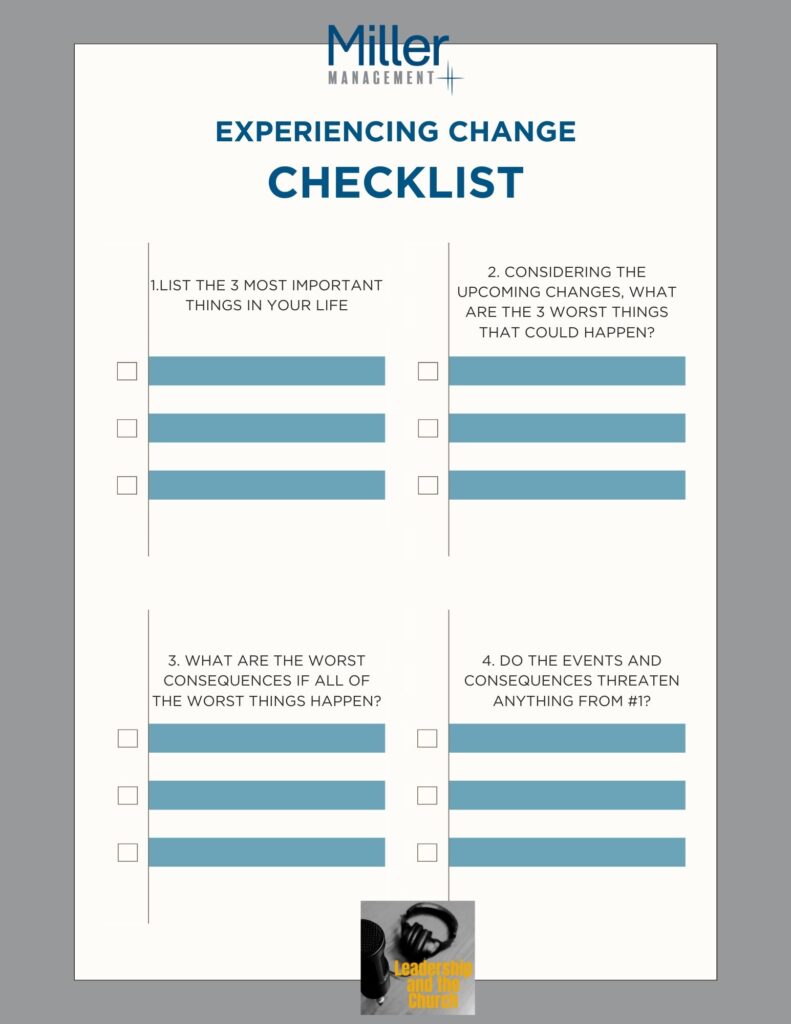Chris Miller, President of Miller Management, is the host of this week’s episode. He is joined by his colleage, Dr. Glenn Miller, CEO of Miller Management.

In this series, we will talk about why change is difficult and how to walk through change well as an organization. If we understanding what people go through, we can better lead them through the process.
Three Stages of Change
Today, we walk to share the 3 levels or 3 steps of the change process. First is leaving the old, second is finding your way (nebulous and uncomfortable stage), and third is starting the new.
Before we get into those, a couple definitions.
Change vs. Transition
Change is an event, point in time, an actual situation. Transition is the process – not a tangable thing. Cynthia Harris talks about in some of her books how we hate chage, but we love it at the same time. We want things to stay the same but also get better. Friends, this can’t possibly be.
Gains and Losses
Doesn’t matter the types of change, there will always be gains and losses associated with change. Be real and upfront about both sides of that change. That helps people feel heard and knows that you were thinking about the impact.
Managing the Resistance
There will be resistance, and as a leader, we have to manage it, you can’t avoid it. Communicate the potential impact of continuing to resist. And acknowledge the positives. Positives are that it can reduce stress, create a more positive team invironment, and help the organization achieve their God given potential.
Manage the Transition
Now we will give you a few tips to manage your people well through the transition time. There are common responses during the three stages, and they are as follows. In the first stage (leaving the old), your people may experience anger and denial, but there hopefully will be some excitement and anticipation. In the second stage (finding your way), there may be some frustration, anxiety, and confusion; but you should also see creativitiy and anticipation. The last stage (starting the new), is when you will start to experience relief, energy, confidence, and nostalgia.
If you are a person of change, you might be tempted to run over people during this transition time. But we would encourage you not to do that. Instead, communicate – provide updates weekly if possible. Valid their fears; and follow with what is right. Celebrate victories and honor the people who participated. Honor the past, and allow tokens to remember the old, when applicable. Be a coach, help people know what they should stop, continue, and start; your people will need guidance.
During the middle ground as a church, you simply need good managing techniques. Be open, communicate, and reinforce the vision. During the third stage, the leader’s job is to focus on the future, share the impact, and how it will accomplish goals of the organization.
Dealing with Change
This exercise can be done as an individual or in a group setting. Have your people get out a sheet of paper and walk them through these four steps.
- List the 3 most important things in your life.
- Considering the upcoming changes, what are the three worst things that could happen?
- What are the worse consequences if all of #2 happens?
- Do the events and consequences threaten anything from #1?

Spoiler alert: the answer to #4 is almost always “no.” And then we can take measurers to de-escalate our attitude on our own. Most of the time, no more leadership intervention is needed. But if their answer is yes, then your job is not done.
Coming Up
The gold ‘ol days often weren’t all good. And what worked in the past, won’t work in the present. Change in necessary, and important; so let’s learn to lead our people well through the transition.
Join us next week as we continue our series on Change Management at a group level with Dr. Glenn Miller.
Join the conversation, see behind the scenes, and learn more on our Instagram and X pages.
Special thanks to our guest, Dr. Glenn Miller, and our masters of all things Podcasting, Chris and Lauren Miller, for this second episode in our Change Management series.
